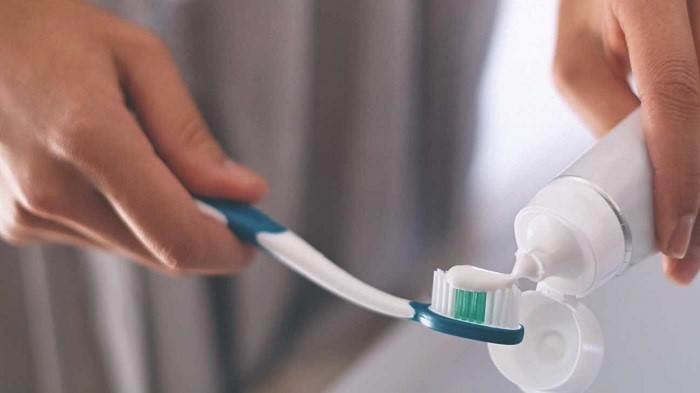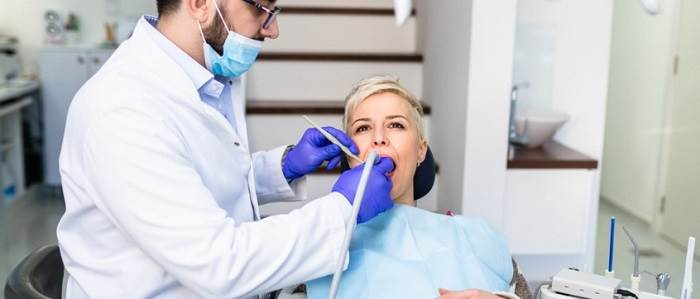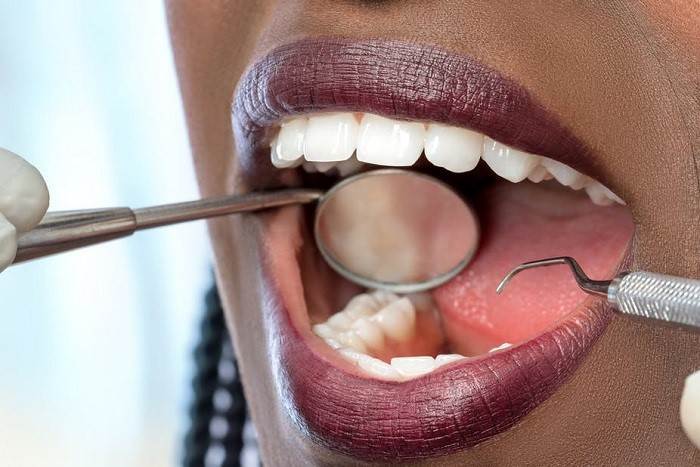Women who are pregnant are more likely to be affected by certain dental conditions such as gingivitis. Pregnancy gingivitis is very similar to the gingivitis that occurs outside of pregnancy and can include a mild inflammation of the gums due to plaque buildup, with red and sore gums that bleed when probed. If you have red, sensitive, or swollen gums during pregnancy, you’re not alone.
Don’t worry though, knowing how to find the best anti-gingivitis toothpaste and best anti-gingivitis mouthwash will help fight off this disease during a time when the health of you and your baby is your top priority. Talking to your dentist and hygienist about this elevated risk before and during this special time in your life can also help reverse or prevent gingivitis.
Causes of gum recession in pregnant women
There’s a direct connection between pregnancy and bleeding gums. During pregnancy, increased levels of the hormone, progesterone, cause an increased response to plaque bacteria which can lead to gingivitis. As a result, pregnant women are more likely to develop gingivitis.
The hormonal changes that occur during pregnancy, particularly the surge in progesterone, are associated with an increased risk of dental conditions such as gingivitis and periodontitis.
Progesterone can encourage the growth of bacteria in plaque around the teeth and gums, which can increase the sensitivity of the gums and lead to inflammation and infection. It is primarily for this reason that approximately 4 in 10 of all pregnant women will develop gingivitis at some point throughout their pregnancy.
Symptoms
You’ve got a lot going on when you’re pregnant, so your oral health may not exactly be top-of-mind. But because your risk of gingivitis increases, it’s as important as ever to maintain the health of your gums and teeth.
The signs of gingivitis, such as red, swollen and sensitive gums that may bleed when the teeth are brushed, may present any time in pregnancy, typically between the second to the eighth month.
In severe cases, gingivitis may progress to a condition known as periodontitis. Periodontitis involves infection and inflammation of the connective tissues around the teeth, including the bones and other tissues that help to hold the teeth in place. Without adequate treatment, they can become so weak that the teeth may become wobbly or fall out.
How to prevent pregnancy gingivitis?
You may not be able to control your hormones, but there are many things you can do to protect your teeth and gums before and during your pregnancy.
Eat a healthy diet
You may not feel the best during pregnancy, especially in your first trimester. But try to eat a diet rich in balanced, whole foods. Eat a variety of:
- fruits
- vegetables
- whole grains
- dairy products
Choose water or milk over juices and sodas. Stay away from foods that are sugary or starchy, like candy, cookies/cakes, and dried fruits. Over time, all those sugars and starches can attack your teeth and gums.
These nutrition tips aren’t just good for your mouth, they’re also great to follow if you want to keep your body and baby-to-be healthy.
Gargle with sea salt
Starting to notice a little swelling or bleeding when you brush? Add a salt gargle to your routine.
Sea salt may reduce inflammation from gingivitis and help to heal your gums. To try this at home, dilute 1 teaspoon of salt into 1 cup of warm water. Swish this mixture around in your mouth a few times and spit out (don’t swallow) when you’re done.
Practice good oral hygiene
Ideally, you should brush your teeth twice each day. Toothpaste that contains fluoride provides an extra barrier of protection. Does brushing feel uncomfortable these days? Make sure you’re using a soft toothbrush. It won’t irritate your tender gums quite as much as firmer varieties.
While you’re at it, make sure you’re flossing at least once each day. Flossing helps catch any trapped food particles and bacteria.
Taking the extra time is well worth your effort. You may even be able to reverse the damage and inflammation done to your teeth and gums by putting consistent brushing and flossing habits into place.
Visit your dentist
One of the best ways to prevent pregnancy gingivitis is to stay in close contact with your dentist. You should have dental visits twice a year, even when pregnant. Don’t miss your scheduled cleanings and ask about additional appointments to help monitor your oral health. Your dentist can spot small issues before they turn into large problems.
Complications of pregnancy gingivitis
Gingivitis can cause complications in your mouth and even for your pregnancy. Periodontitis is a more advanced stage of gum disease that can spread down to the bone. If you develop periodontitis, your baby-to-be may be at an increased risk of preterm birth or low birth weight, among other health conditions.
Remember, the gums hold your teeth in place. If left untreated, gingivitis may eventually lead to tooth loss.
There are many other different reasons why periodontal disease may affect the health of the mother and her unborn child:
- Prostaglandin– Periodontal disease appears to elevate levels of prostaglandin in mothers who are suffering from the more advanced forms of the condition. Prostaglandin is a labor-inducing compound found in one of the oral bacteria strains associated with periodontitis. Elevated levels of prostaglandin can cause the mother to give birth prematurely and deliver a baby with a low birth weight.
- C – reactive protein (CRP)– This protein, which has been previously linked to heart disease, has now been associated with adverse pregnancy outcomes including preeclampsia and premature birth. Periodontal infections elevate C-reactive protein levels and amplify the body’s natural inflammatory response. Periodontal bacteria may enter the bloodstream causing the liver to produce CRP which leads to inflamed arteries as well as possible blood clots. These inflammatory effects can then lead to blocked arteries causing strokes or heart attacks.
- Bacteria spread– The bacteria which colonize in the gum pockets can readily travel through the bloodstream and affect other parts of the body. In pregnant women, research has found that oral bacteria and associated pathogens have colonized in the internal mammary glands and coronary arteries.
When to see your dentist?
Contact your dentist if you’ve noticed any changes in your teeth or gums that you think should be immediately addressed.
Sometimes pregnant women develop what are called “pregnancy tumors” on the gums. These lumps are benign and usually go away after you deliver. Still, they can bleed and your dentist can remove them if they bother you.
Tell your dentist about your pregnancy, even if you haven’t told your friends and family. This information is important so you can get the best care. You should also keep up with regularly scheduled cleanings during your pregnancy and ask your dentist if they recommend more frequent visits.
You can usually schedule X-rays for after your pregnancy if you’re worried about the risk of radiation.
If your dentist does need to perform an X-ray, you’ll be given an apron to lay over your abdomen and another one to cover your thyroid for safety.
Treatment of gum recession in pregnancy
Sometimes, gum disease might be too far along to treat at home.
If this is the case, consider some of these options:
Oral Antibiotics
If the bacterial infections are severe, your doctor or dentist may put you on a round of antibiotics to help combat the infection.
Your doctor should know which antibiotics are safe during pregnancy, but you should let your doctor know if you have any allergies before starting antibiotics. Common Antibiotics Prescribed during Pregnancy:
- Amoxicillin
- Ampicillin
- Clindamycin
- Erythromycin
- Penicillin
- Nitrofurantoin
Prescription Mouth Rinse
Another item that your doctor or dentist might prescribe is prescription mouth rinse to help treat gum disease.
Surgery
If the gum disease has progressed and the antibiotics or other treatments are unsuccessful in helping the disease, your dentist might recommend surgery to repair the gums. Surgery is serious, so it is best to consult with your dentist or doctor before going through with the surgery.







